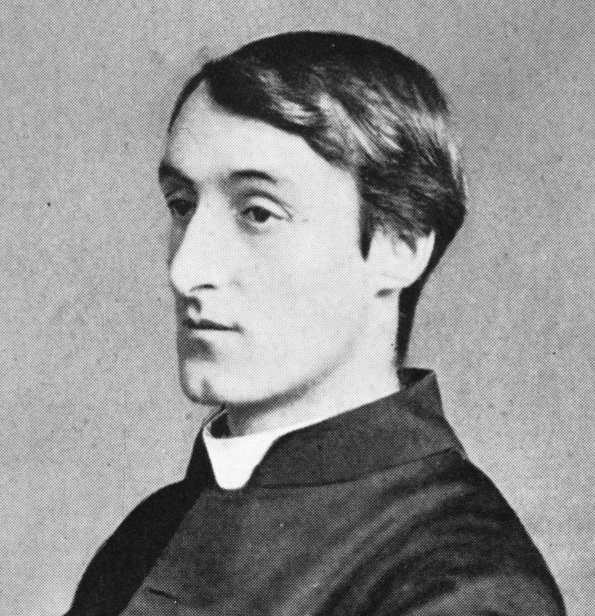Gerard Manley Hopkins is considered to be one of the greatest poets of the Victorian era. However, because his style was so radically different from that of his contemporaries, his best poems were not accepted for publication during his lifetime, and his achievement was not fully recognized until after World War I. Hopkins’s family encouraged his artistic talents when he was a youth in Essex, England. However, Hopkins became estranged from his Protestant family when he converted to Roman Catholicism. Upon deciding to become a priest, he burned all of his poems and did not write again for many years. His work was not published until 30 years after his death when his friend Robert Bridges edited the volume Poems. Quote from Poetry Foundation. A Gerald Manly Hopkins poem.
Nondum (Latin: Not Yet)
God, though to Thee our psalm we raise
No answering voice comes from the skies;
To Thee the trembling sinner prays
But no forgiving voice replies;
Our prayer seems lost in desert ways,
Our hymn in the vast silence dies.
We see the glories of the earth
But not the hand that wrought them all:
Night to a myriad worlds gives birth,
Yet like a lighted empty hall
Where stands no host at door or hearth
Vacant creation’s lamps appall.
We guess; we clothe Thee, unseen King,
With attributes we deem are meet;
Each in his own imagining
Sets up a shadow in Thy seat;
Yet know not how our gifts to bring,
Where seek Thee with unsandalled feet.
And still th’unbroken silence broods
While ages and while æons runs,
As erst upon chaotic floods
The Spirit hovered ere the sun
Had called the seasons’ changeful moods
And life’s first germs from death had won.
And still th’abysses infinite
Surround the peak from which we gaze.
Deep calls to deep, and blackest night
Giddies the soul with blinding daze
That dares to cast its searching sight
On being’s dread and vacant maze.
And Thou art silent, whilst Thy world
Contends about its many creeds
And hosts confront with flags unfurled
And zeal is flushed and pity bleeds
And truth is heard, with tears impearled,
A moaning voice among the reeds.
My hand upon my lips I lay;
The breast’s desponding sob I quell;
I move along life’ tomb-decked way
And listen to the passing bell
Summoning men from speechless day
To death’s more silent, darker spell.
Oh! till Thou givest that sense beyond,
To shew Thee that Thou art, and near,
Let patience with her chastening wand
And lead me child-like by the hand
If still in darkness not in fear.
Speak! whisper to my watching heart
One word-as when a mother speaks
Soft, when she sees her infant start,
Till dimpled joy steals o’er its cheeks.
Then, to behold Thee as Thou art,
I’ll wait till morn eternal breaks.


